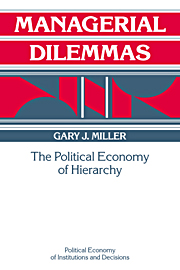Introduction
Published online by Cambridge University Press: 05 June 2012
Summary
In the early days of 1914, Henry Ford made a major decision about the allocation of resources at Ford Company. At a board meeting, he proposed raising the daily wage for his employees significantly above the going market rate of approximately $2.20. Members of the board, amazed at the proposal, responded ironically that if he was going to raise the daily wage to $3, he might as well raise it to $4 or even $5. Ford accepted the challenge and made a place for himself in history by announcing the $5 day. Approximately half of the company's anticipated profits, a sum equal to $10 million, were set aside for the new plan, which went into effect on January 12 of that year (Meyer 1981).
What do the social sciences have to say about Ford's decision to impose a $5 day? In what terms is this historical fact to be analyzed? Was it a simple, profit-maximizing act on Ford's part? Or was it fundamentally a political act?
TWO LITERATURES ON HIERARCHY
Since the inception of organization theory, there have been two rather distinct literatures on the topic of organizational control. One views organizational control as a mechanistic problem of designing incentive systems and sanctions so that self-interested and intrinsically unmotivated employees will find it in their own interest to work toward the organization's goals. In other words, management is seen as shaping subordinate behavior through the correct system of rewards and punishments.
Information
- Type
- Chapter
- Information
- Managerial DilemmasThe Political Economy of Hierarchy, pp. 1 - 14Publisher: Cambridge University PressPrint publication year: 1992
